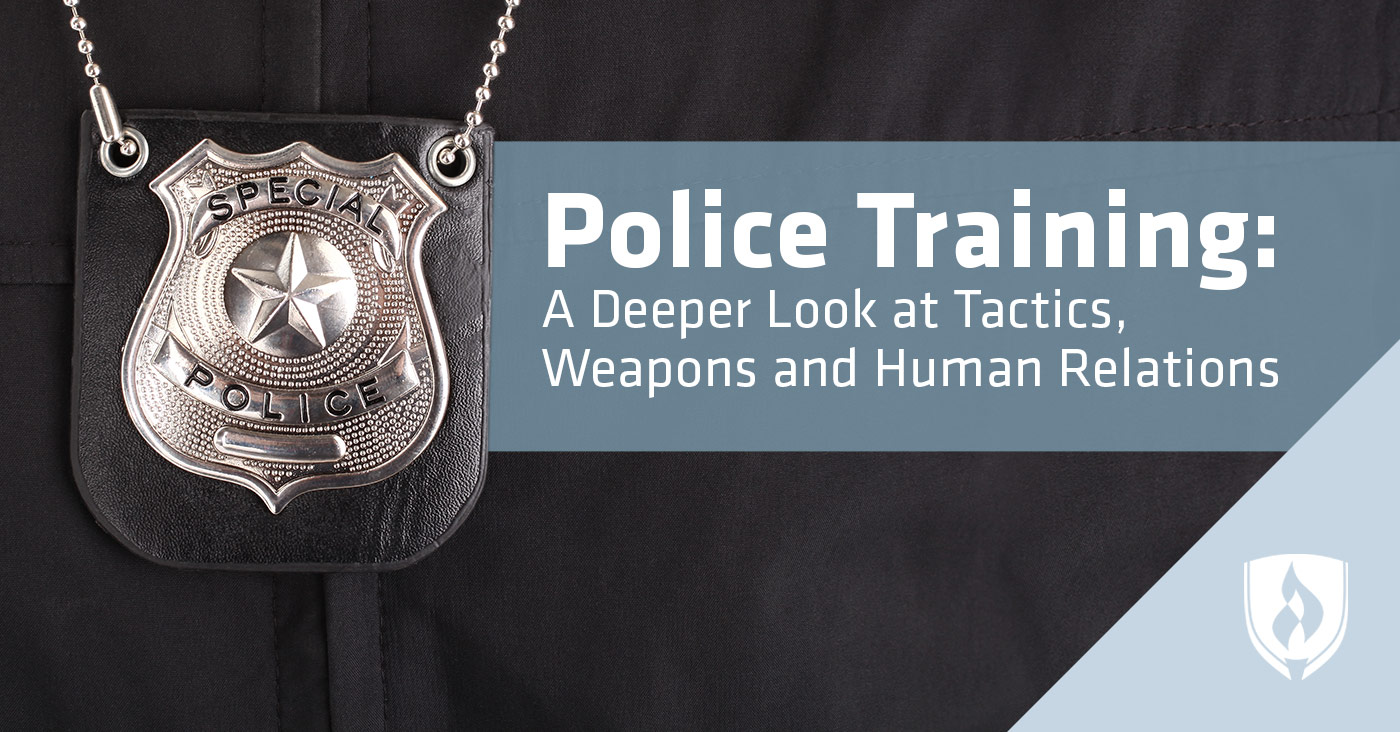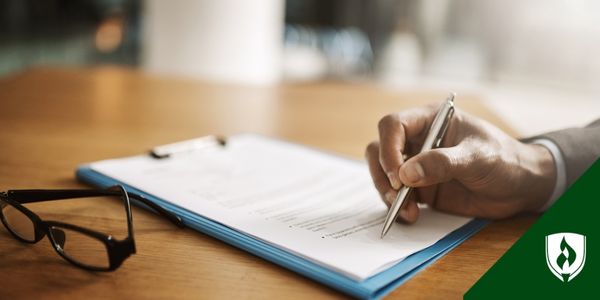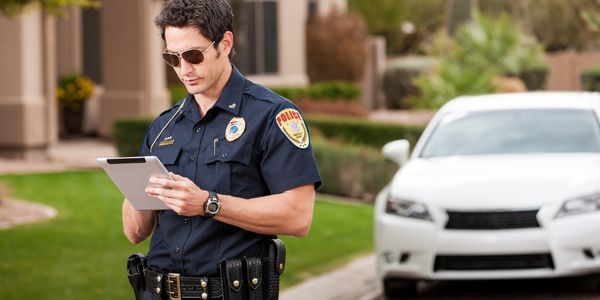Police Training: A Deeper Look at Tactics, Weapons and Human Relations
By Brianna Flavin on 03/07/2018

It takes a lot to be a police officer. The subject matter of police training ranges across many different disciplines. Law enforcement is a complex subject, and those who decide to become officers quickly realize there’s more to the job than reading perpetrators their rights.
“One of the major challenges in training police officers is that the things we have to do least often are the things we have to do the best,” says retired lieutenant and tactical instructor Brian McKenna. “Most of us go our whole career never firing a shot outside of a practice range. But if we have to use a weapon, we can’t afford to mess up.”
Like all other school disciplines, Law Enforcement programs only have a certain amount of time to teach their students the information they need to succeed on the job. While every program is different, there are core aspects most have in common, but that’s only the beginning. The best police officers continue training throughout their careers to stay safe and hone their abilities. In this article, we’ll explore some of the major focus areas of police training and how it ties into today’s law enforcement landscape.
Police training: The foundation
The first step in a police officer’s training isn’t necessarily the same for all officers. Some apply to a law enforcement academy straight out of high school. Others begin the academy with a college degree or military experience.
Though police academies may not require new recruits to hold anything beyond a high school diploma, a college education is definitely an asset. McKenna says the exposure you get to different people, cultures and worldviews in college can be a critical foundation for police officers in their human-relation skills—a skill set that can save lives on the force.
“You don’t have to be on the job very long before you realize it’s a heck of a lot easier to talk someone into handcuffs than to fight them,” McKenna says. “It’s less paperwork and less risk to everyone involved.” McKenna says most officers he knew at the beginning of his career were naturally good communicators. But even the best “people-persons” can benefit from extra training.
“You can’t do this job without human-relation skills,” McKenna says. “You have to know how to respect people. The way you talk and can be the difference between a gunfight and a peaceful resolution.” As an added incentive, McKenna points out that officers who communicate well also get more confessions.
College can be a great place to gain more skill in communicating with lots of different people. Some officers even go back to college while working. “That kind of thing can get you promotions,” McKenna says. “It looks good to take the initiative for more education.”
Police training: The academy
Police academies can be found connected to local law enforcement departments and some state boards, such as POST in Minnesota, administer licensing programs and set standards for schools to offer police officer training and education programs.
Program curriculum requirements vary from state to state, but according to Discover Policing, most academies spend the bulk of their time training students in use of firearms, criminal and constitutional law, patrol procedures and defensive tactics.
“One of the most frustrating things in training police officers are the perishable skills,” McKenna explains. When you learn a subject in school, you can hang on to that foundational knowledge for a long time, even your whole life. But training in how to use a weapon or physically respond to an attack will fade after enough time goes by. Those skills require continual use or refresher courses to stay sharp.
“Programs put a higher priority on firearms because using them correctly is so critical,” McKenna says. “We do a decent job of training police officers with firearms. But in an ideal world, we’d give more time to control and defensive tactics.” McKenna says these tactics include hands-on maneuvers, strikes, takedowns and use of the baton, Taser or OC spray.
Control tactics require more time and work to learn to do right, according to McKenna. Additionally, it can be difficult to prepare officers for the variety of scenarios they’ll face. “If you learn ground fighting, for example, you train on a mat,” McKenna says. “But it’s a physical skill with variables. Out in the field, you could have multiple assailants fighting on a hill in the snow.”
“Some schools do a better job with those skills than others,” McKenna says.
Police training: On the job
Officers need to keep their perishable skills as sharp as possible, so departments often have annual, semiannual or quarterly refresher courses or certifications. “Sometimes there might be a specific training mandated by the state,” McKenna says. For example, after the Columbine high school shooting, his state mandated active-killer training for all police departments.
But even though many departments would love to give their officers more training time, every minute officers spend in training is a minute spent away from their jobs. If a police department is shorthanded, training time is even harder to come by. “We aren’t special forces,” McKenna says. “We can’t just spend our days training while we wait for a call—we are getting called to help 24/7.”
Even with those difficulties, McKenna says departments have to take the time to send their officers to train as much as they can. “Lots of officers self-train too.” McKenna says many officers will read books, take online tutorials, attend conferences and even attend a class or hire a private instructor to get more training.
Officers might spend time trying to invest more study and work in areas that interest them or in areas where they feel deficient.
Police training: Getting ahead
Officers who are currently in the field, as well as anyone hoping to become a police officer, can study up and better equip themselves for the job. “Human relations is a huge one that helps with de-escalation,” McKenna says. “I’d recommend the book Arresting Communication to every police officer.”
Anything that teaches you to observe and assess an environment is extremely useful. “To act in the heat of a moment, you have to make a decision. To make a decision, you have to understand the situation. To do that, you have to observe,” McKenna says. “Most of our training is focused on response to an attack. But the best officers make a habit of assessing every environment until it’s done subconsciously. Habits like that can save your life.”
Physical activity is another aspect of police training you can do at all stages of the career path. “Being physically healthy improves your survivability, the likeliness that you will recover from a wound and even the sharpness of your mental activity,” McKenna says.
A love for training
For police officers, training never stops. McKenna emphasizes that while it feel great to keep criminals off the streets, there are so many other aspects of the job that are less glamorous. A genuine interest in the subject matter can carry you far in the job and keep things from feeling tedious. Tactics, human relations and investigations—the list of subjects in police training is long.
If police training interests you, you might be curious to see what a Law Enforcement program is like in more detail—after all, these programs are where the foundations of police training happens. To learn more about the ways Rasmussen College can prepare you for a career in law enforcement, check out our article, “8 Things You Didn't Know About The Rasmussen College Law Enforcement Program.”
Related Articles:




